Faculty of Engineering
- Antonio Malpica-Morales - Department of Chemical Engineering
- Tom Savage - Department of Chemical Engineering
- Yuxi Cheng - Department of Materials
- Zeyad Khalil - Department of Civil and Environmental Engineering
Name: Antonio Malpica-Morales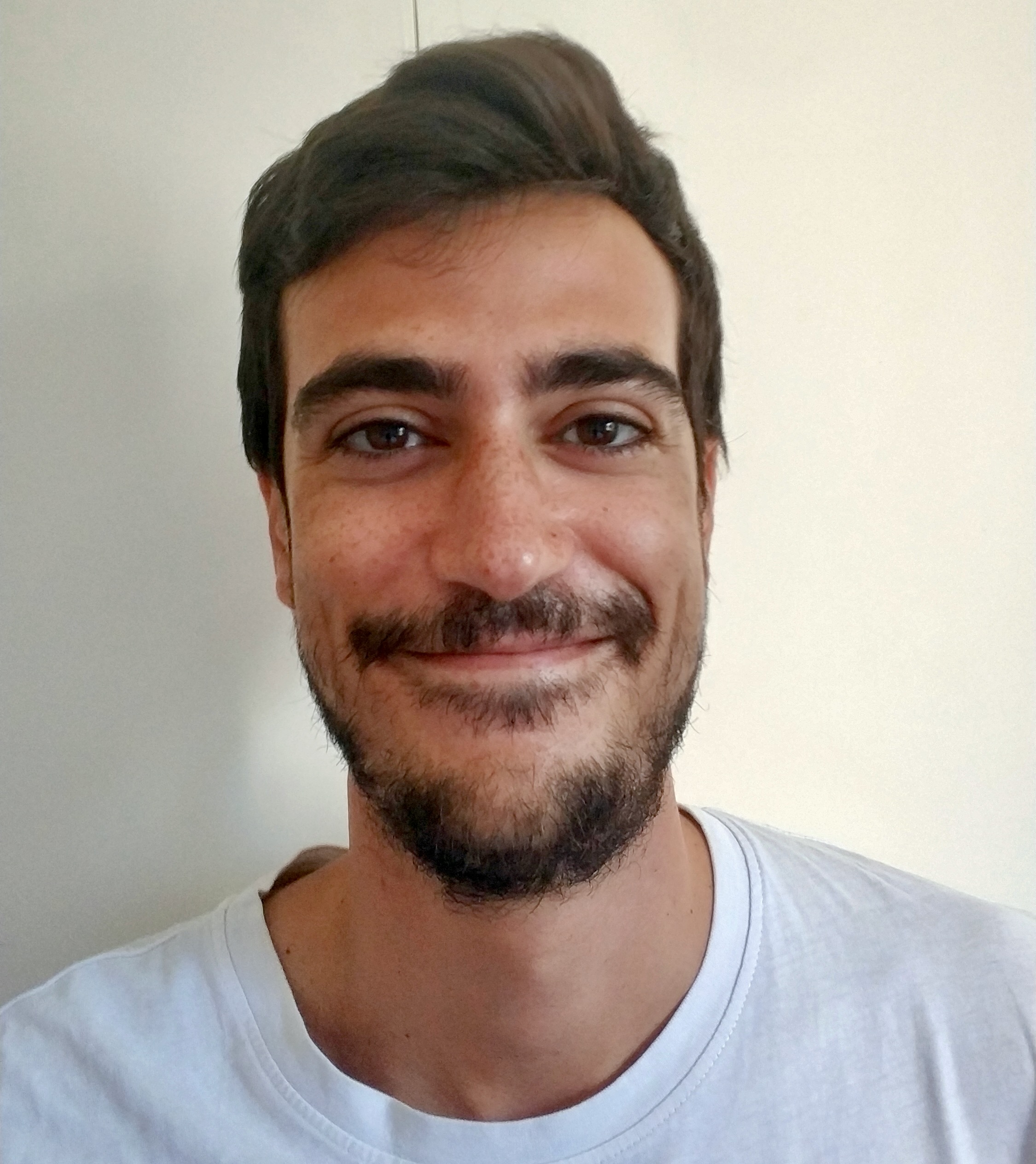
Department: Chemical Engineering
Title of Research: Data-driven modelling and prediction of complex systems
Email: a.malpica-morales21@imperial.ac.uk
Personal Web Page address: a.malpica-morales21
Supervisor(s): Professor Serafim Kalliadasis, Dr Miguel A. Durán-Olivencia
About me: I was born in Jaen, a small city in the south of Spain. At the age of 17, I moved to Madrid (Spain) to study Industrial Engineering at Comillas Pontifical University, ICAI, spending one year abroad in an exchange programme at University College London. I also completed a MSc in Engineering System Modelling at Comillas Pontifical University, ICAI where I collaborated as a research scholar at the Institute for Research in Technology from the same university in projects related to the mathematical modelling of electricity markets and power system operation. Before joining Imperial, I worked for 5 years in the financial sector. First, I worked as a data scientist at Ebury, a European fintech company where I was responsible for developing end-to-end machine learning models to enhance business operation and decision-making process for key stakeholders. Then, I moved to Allfunds, the world leading wealthtech, where I became the lead cloud architect. At Allfunds, I built from scratch a cloud-based ecosystem that processes and analyses around €1.3 trillion in assets under administration (which translates to more than 25 terabytes of information) on a daily basis.
Summary of Research: My current research interest is the understanding and implementation of data-driven and machine learning techniques to model and predict complex systems. Applying these techniques to a wide variety of real complex systems (fluids, climate, social networks or financial markets) allows us to infer and extract the hidden dynamic laws that govern the time-evolution of such intricate systems. Obtaining these dynamic laws is essential to explain certain phenomena (spatiotemporal dynamics at different scales, chaos, phase transitions, etc.) that emerge as the result of the non-trivial interactions between the system’s constituents.
The leitmotif of my PhD is the study of complex systems in stationary and non-stationary conditions (in and out of equilibrium) combining physics and mathematics areas (stochastic processes, differential equations, statistical physics) with statistical learning frameworks. The overarching objective is the development of a generalised theoretical-computational framework that can be widely applied to represent empirically observed complex phenomena across different subject areas and application domains.
Research interests: Complex systems, stochastic processes, stochastic differential equations, statistical physics, Langevin dynamics, Fokker-Planck equation, machine learning, neural differential equations.
Why did you choose the scholarship scheme at Imperial College: The President's PhD Scholarship has offered me the opportunity to return to Academia after some years working in industry. It has also provided me with the financial support to carry out a research project of my interest, which is the understanding of the fundamental laws governing the kinetics and thermodynamics of complex systems combined with the application of state-of-art machine learning techniques. In addition, this scholarship has connected me with outstanding researchers and allows me to be part of a network of excellent PhD students fostering interdisciplinarity and the exchange of ideas.
Name: Tom Savage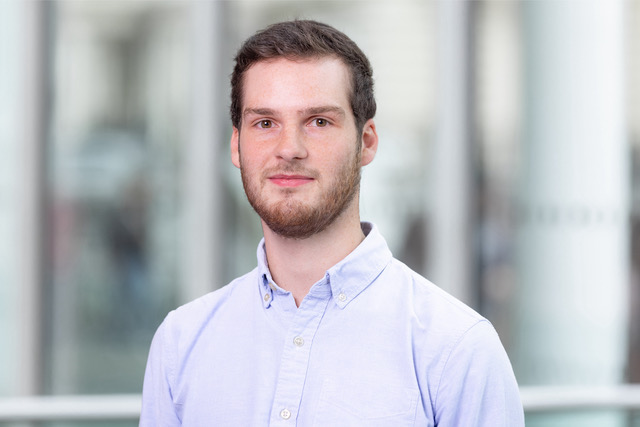
Department: Chemical Engineering
Title of Research: Optimisation & Machine Learning for Chemical Engineering
Email: trs20@ic.ac.uk
Personal Web Page address: https://tom-savage.co.uk
Supervisor(s): Dr Antonio Del Rio Chanona
About me: I completed my BEng in Chemical Engineering at the University of Manchester and subsequently went on to complete an MPhil by research in the Department ofChemical Engineering & Biotechnology at the University of Cambridge.
Summary of Research: My work currently focusses both on the optimisation of coiled tube reactors via computational fluid dynamics, and separately, applications of robust optimisation to future energy systems.
Coiled tube reactors have promising properties, however it is difficult to determine the best configurations. I apply Bayesian optimisation methods directly on CFD simulations to determine novel, and optimal reactor geometries.
Future energy systems are increasingly uncertain. To account for this I apply robust optimisation to find realistic, and certain policies to encourage the use of low-carbon technologies.
My collaborators who I have to thank include Dr Gbemi Oluleye in the Centre for Environmental Policy, and Dr Nausheen Basha within the Chemical Engineering Department.
Research interests: Optimisation Under Uncertainty, Black Box Optimisation, Energy Systems, Computational Fluid Dynamics
Why did you choose the scholarship scheme at Imperial College: It provided me the opportunity and the freedom to pursue a wide range of interdisciplinary topics. The consumables budget also allows me to travel to conferences I would not have had the chance to attend otherwise.
Name: Yuxi Cheng
Department: Materials
Title of Research: Hybrid Organic-Inorganic Nanoparticles for Biosensing Application
Email: y.cheng21@imperial.ac.uk
Supervisor(s): Prof. Molly Stevens
About me: MSc in Pharmaceutics, Peking University, China [2019-2021]; BSc in Pharmaceutical Sciences, Peking University, China [2015-2019]
Summary of Research: My research project aims to engineer hybrid organic-inorganic nanomaterials as biosensors with improved performance for disease diagnosis, combining the catalytic activity of metal NPs or ions with the anti-biofouling characteristic of soft polymers to achieve both high catalytic activity and low non-specific interaction.
Research interests: Nano materials, bio-sensing, diagnostics
Why did you choose the scholarship scheme at Imperial College: Being awarded the President's PhD Scholarship makes me feel incredibly proud. It not only gives me financial support to finish my PhD, but also inspires me to do innovative and meaningful scientific research.
Name: Zeyad Khalil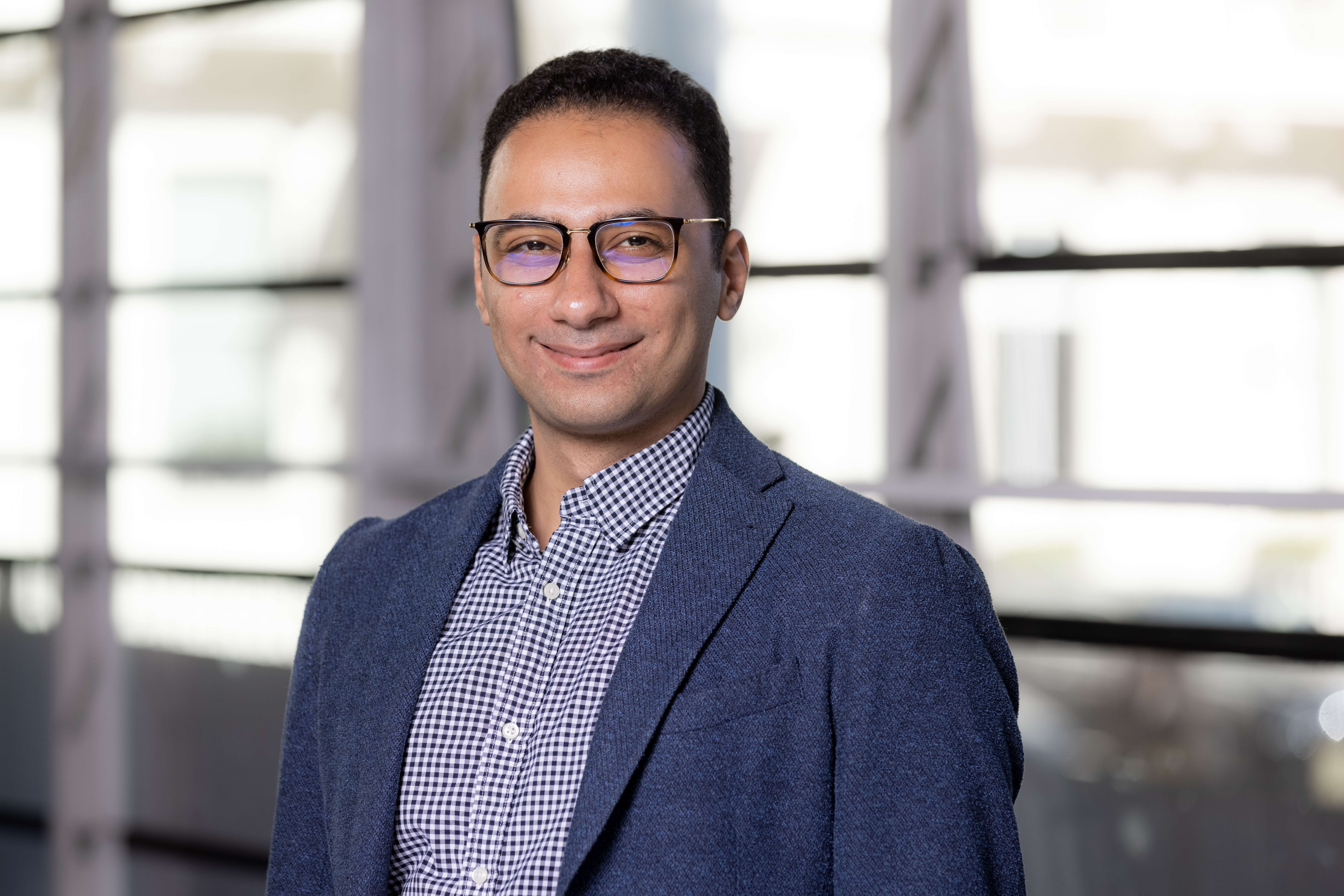
Department: Civil and Environmental Engineering
Title of Research: Seismic performance and risk assessment of renewable energy structures: Application to Offshore Wind Farms
Email: zeyad.khalil19@imperial.ac.uk
Personal Web Page address: https://www.imperial.ac.uk/people/zeyad.khalil19
Supervisor(s): Professor Peter Stafford and Professor Ahmed Elghazouli
About me: I am a President's PhD Scholar at Imperial College London. I was born and raised in Egypt where I obtained my MSc degree in Earthquake Engineering with Distinction from Imperial College London in 2020 and my BSc degree in Civil Engineering with First Class Honours from the German University in Cairo in 2018, where I completed my BSc project and thesis at the Institute of Lightweight Structures and Conceptual Design (ILEK) at the University of Stuttgart, Germany. I am currently undertaking my PhD at Imperial under the supervision of Professor Peter Stafford and Professor Ahmed Elghazouli, where my research is focusing on the seismic performance and risk assessment of renewable energy structures with particular emphasis on offshore wind farms. I have been awarded a number of prizes and scholarships during my studies. In 2019, I was offered the Imperial College London Civil and Environmental Engineering Departmental MSc Overseas Scholarship and managed to complete my MSc with Distinction and graduated top of the final class list in the Advanced Structural Engineering MSc cluster where I was awarded the Letitia Chitty Centenary Memorial Prize, Patrick J Dowling Prize in Advanced Structural Engineering and the ABS Consulting Prize in Earthquake Engineering. I was also awarded the GUC Academic Excellence Award for the years 2015 and 2017 for outstanding academic performance and was granted BSc Project Excellence Certificate of Merit and Academic Excellence Certificate of Recognition from the Egyptian Engineers Syndicate. And recently, I was awarded Imperial College President's PhD Scholarship and Skempton Scholarship (superseded) to undertake my PhD starting from October 2021. My recent research work involved the numerical investigation of the fatigue-induced fracture in steel components undergoing low-cycle fatigue. I have also been involved in the collaborative European project FAILNOMORE where I have contributed to the development of a design manual on the design of steel and composite buildings against progressive collapse.
Summary of Research: Wind energy is continuously growing to be a major source of clean renewable energy at the present time where countries worldwide have set ambitious targets to reach net-zero carbon emissions, with offshore wind energy production regarded as a key contributor. Offshore wind farms have been recently constructed in earthquake-prone regions globally, along with ambitious future expansion plans in countries of moderate-to-high earthquake activity (e.g., Italy, Greece, Taiwan, Japan, China, United States, and others). There is a limited track record of long-term performance of large-scale offshore wind turbines under earthquake loading which urges the need to understand the response of such structures under such type of extreme loading. Such understanding would help ensure the resilience of such assets, in addition to evaluating and managing the risks associated with their exposure to such extreme environmental hazard scenarios. Successful completion of this research would lead to more reliable and effective seismic assessment and design procedures, which would enable implementation in practical guidance.
Research interests: Structural Engineering; Earthquake Engineering; Renewable Energy Infrastructure; Structural Robustness and Progressive Collapse Mitigation
Why did you choose the scholarship scheme at Imperial College: Imperial is known to be one the top universities in the world with its world-renowned department of Civil and Environmental Engineering. Having the chance to learn and interact with world leading academics is such a rewarding experience for me. Developing my research skills to help me produce high-quality research that would have a wider impact on the society is not only the most challenging but the most rewarding part. In addition, getting to learn and interact with my supervisors who are worldwide experts in the field, as well as my fellow colleagues, is the most enjoyable. The scheme offers generous support towards living expenses in addition to full coverage of the tuition fees at the overseas rate. I felt both grateful and proud to be awarded such prestigious scholarship, and I feel so privileged to join such bright and motivated cohort of PhD scholars.
Faculty of Medicine
- Ceri Pickering - Department of Brain Sciences
- Lexi Hand - Department of Brain Sciences
- Nora Escher - School of Public Health
- Pablo N Perez-Guzman - Department of Infectious Disease
Name: Ceri Pickering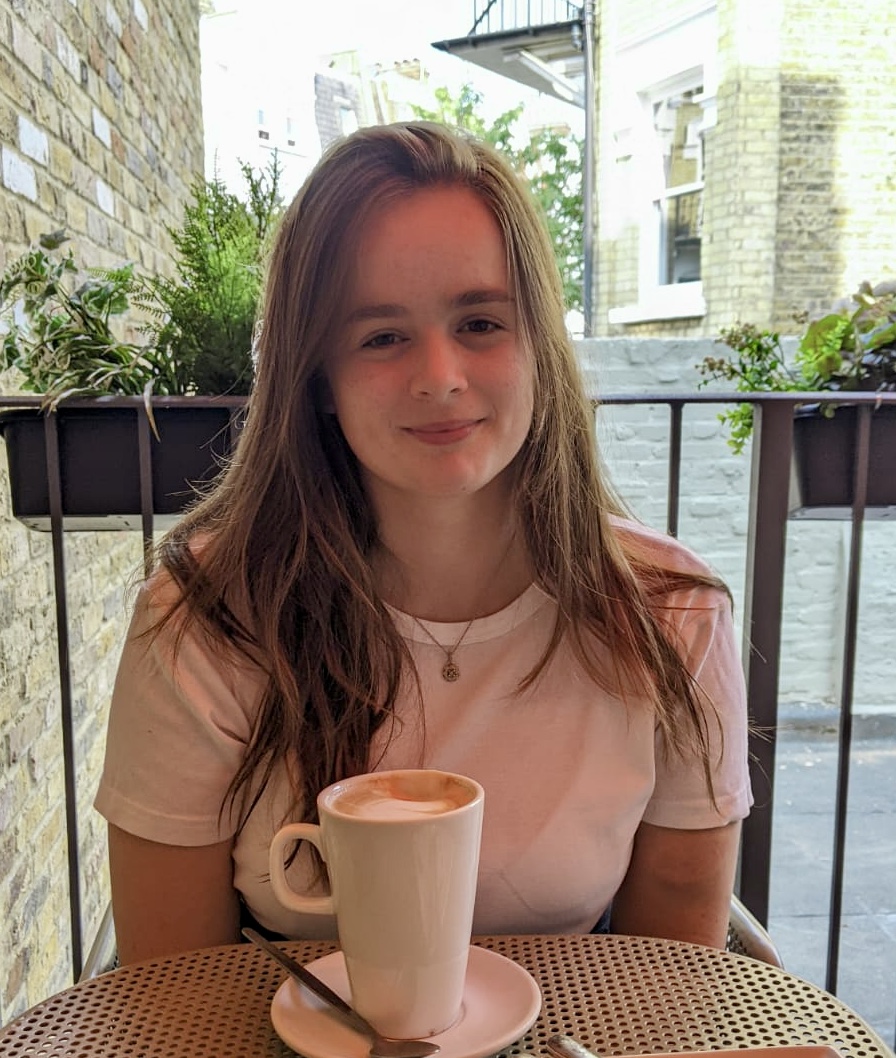
Department: Brain Sciences
Title of Research: Investigating the role of Astrocytes in CDKL5 Deficiency Disorder
Email: ceri.pickering19@imperial.ac.uk
Personal Web Page address: https://www.linkedin.com/in/ceri-p-93312b16a/
Supervisor(s): Professor Nicholas Mazarakis FRSB, Professor Richard Reynolds, Professor Richard Festenstein
About me: I graduated from Royal Holloway, University of London in 2019 with a First in Medical Biochemistry. During my undergraduate degree, I became interested in molecular mechanisms of disease and novel therapeutic strategies by which to treat them – specifically in the context of Neuroscience. To further my knowledge of the development of novel therapies, I went on to study MSc Genes, Drugs and Stem Cells at Imperial. I undertook my research project under the supervision of Professor Nicholas Mazarakis FRSB, looking into the use of DREADDs in Neuroscience. I was fortunate enough to get this work published and subsequently graduated from my MSc with a Distinction - having been awarded the Dean’s Prize for highest overall mark in my cohort. I then undertook a year-long Research Assistant position in the lab of Prof. Mazarakis, where I began investigating the role of astrocytes in CDKL5 deficiency disorder. I’m grateful to have remained in this lab undertaking my PhD in the same subject.
Summary of Research: CDKL5 Deficiency Disorder (CDD) is a relatively rare but often debilitating disorder in which a mutation in the gene encoding the CDKL5 protein can cause a reduction or absence of functional CDKL5. Consequently, patients often experience recurrent seizures and severe developmental delays. The age of children at the point of seizure onset is commonly before the age of three months and some patients experience multiple seizures per day. At present, there is no effective cure for CDD.
A large amount of research surrounding CDD has focused on the role of neurons in models of the disease, with many interesting observations regarding the role of CDKL5 in maintaining excitatory/inhibitory balance within the brain. However, no clear consensus has been reached concerning the exact mechanisms by which CDKL5 deficiency causes epilepsy in CDD patients. Astrocytes are brain cells which have been implicated in other epilepsies, and yet very little is known about the role of astrocytes in CDD. My research therefore aims to elucidate the role of astrocytes in CDD and use this information to identify and test novel therapeutic targets.
Research interests: Glial cells; Epilepsy; Gene Therapy; Viral Vectors; Molecular Biology
Why did you choose the scholarship scheme at Imperial College: I chose the President’s Scholars program at Imperial predominantly as it allowed me to be involved in the design of my project in conjunction with my chosen supervisor. This meant I could tailor the project towards my specific interests and include techniques I wanted to learn. It also meant that I could choose a lab group and supervisor that I had already worked with and wanted to continue working with.
Name: Lexi Hand
Department: Brain Sciences
Title of Research: Characterising emotional processing and modulation by NK1 antagonism in opioid dependence.
Email: a.hand21@imperial.ac.uk
Personal Web Page address: https://www.imperial.ac.uk/people/a.hand21
Supervisor(s): Prof Anne Lingford-Hughes, Dr Louise Paterson
About me: I’m Lexi, a Research Postgraduate in the Division of Psychiatry. I received my BSc Pharmacology degree from the University of Bristol, where I was awarded the Hans Heller Memorial Prize and the BSc Pharmacology Prize from the British Pharmacological Society for my achievements during this time. I subsequently received my MSc Biomedical Science (Neuroscience) degree from the University of Melbourne, where I was a postgraduate researcher in the Addiction Neuroscience laboratory at the Florey Institute of Neuroscience and Mental Health. During this time, I undertook a major preclinical research project examining the role of the neuropeptide cocaine- and amphetamine-regulated transcript in the central nucleus of the amygdala during stress-induced alcohol seeking in rats.
Summary of Research: For my PhD, I am characterising emotional processing and its modulation by NK1 antagonism in opioid dependence. To do this, I am working on the ongoing NCORE study, and remaining data from the ICCAM platform study that have not yet been explored. I am specifically focusing on whether NK1 antagonism modulates negative emotional processing and examining whether this may aid relapse prevention by attenuating craving during abstinence from opioids. Additionally, I am investigating the relationship of NK1 antagonism with stress and anxiety and whether this subsequently impacts relapse outcomes. Furthermore, I am exploring the effect of NK1 antagonism on emotional bias and whether this is associated with baseline stress and anxiety indices.
Research interests: opioid addiction, negative emotional processing, stress, anxiety, relapse
Why did you choose the scholarship scheme at Imperial College: The scholarship scheme allows me the opportunity to live comfortably in London whilst being able to perform my research in the world-leading addiction research group at Imperial.
Name: Nora Escher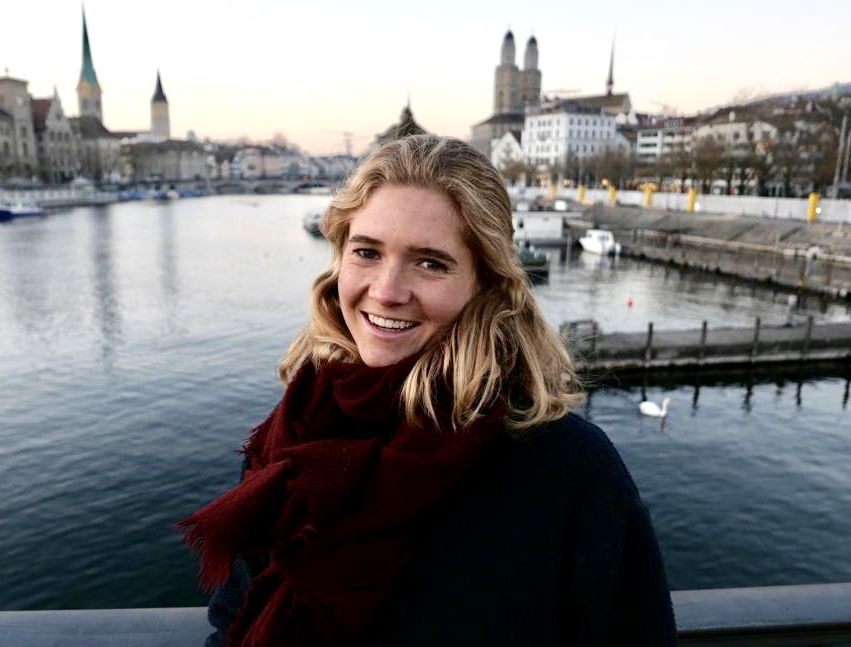
Department: Primary Care and Public Health
Title of Research: Identification of policies to address the Double Burden of Malnutrition in low- and middle-income countries and modelling their future economic impact
Email: n.escher21@imperial.ac.uk
Personal Web Page address: https://www.linkedin.com/in/nora-escher-2b407319b/
Supervisor(s): Professor Christopher Millett
About me: Before moving to London, I lived and studied in Zurich. I completed a bachelor’s in Biology and a master’s in Molecular Health Sciences, both at the ETH Zurich. After graduating, I completed an internship at the Swiss Tropical and Public Health Institute and another one at the United Nations Development Programme. Following these experiences, I then decided to do a PhD in the field of Public Health.
Summary of Research: Over the past decades, economic growth, urbanization, and globalization lead to a shift in the quality and quantity of human diets across the globe. This transition sowed the seeds for the coexistence of undernutrition and obesity, or diet related non-communicable diseases within the same individual, household, or population – a phenomenon defined as the double burden of malnutrition. My research aims to re-evaluate the effect of past nutrition policies on the Double Burden of Malnutrition and to model the future economic impact of such measures by a Cost-Benefit Analysis and System Dynamics. My research focuses on Low- and Middle-Income Countries and a major part of the project specifically targets Peru, where the Double Burden of Malnutrition poses a major challenge.
Research interests: Health policy and economics, food systems, non-communicable diseases, Nutrition, LMICs
Why did you choose the scholarship scheme at Imperial College: The Scholarship offers me full academic freedom and therefore allowed me to combine my academic experience in molecular nutrition research and my professional experience in public health into one tailor-made research project that perfectly aligns with my interests, skills, and aspirations for my future.
Name: Pablo N Perez-Guzman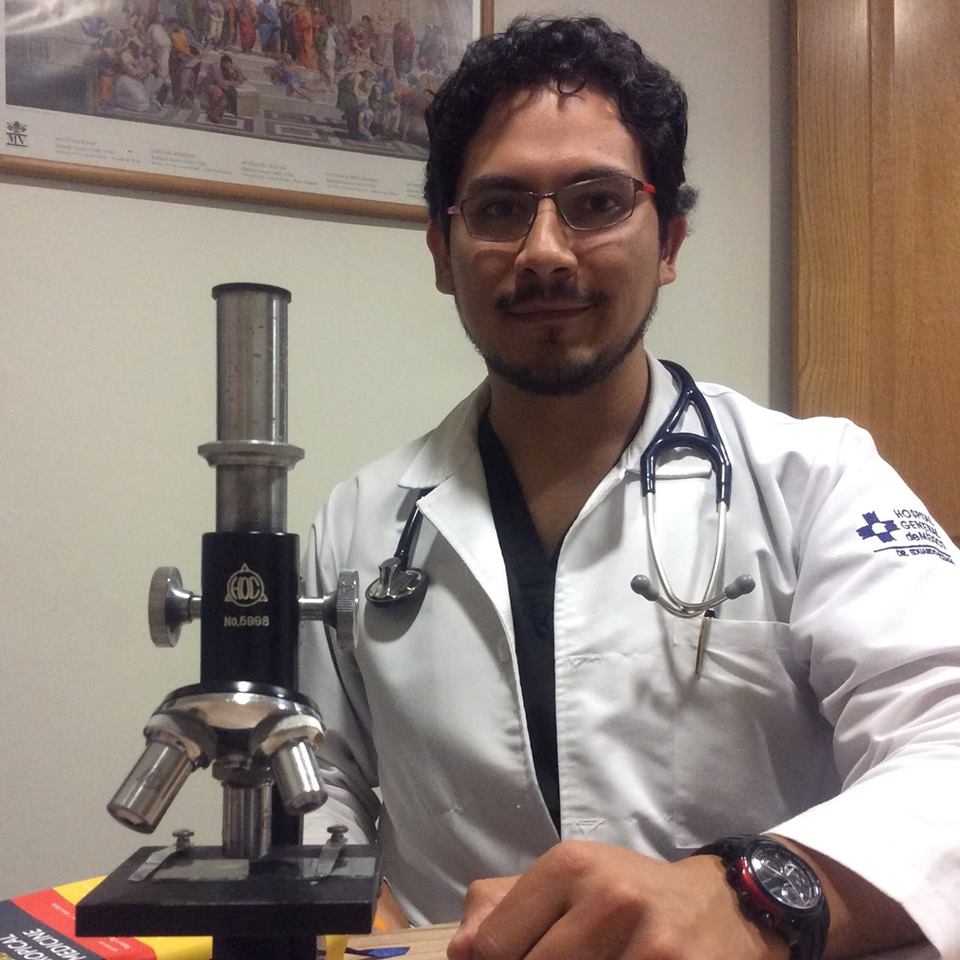
Department: Infectious Disease Epidemiology
Title of Research: Strengthening models of integrated health service delivery for pandemic preparedness in low- and middle-income countries
Email: p.perez-guzman@imperial.ac.uk
Personal Web Page address: p.perez-guzman
Supervisor(s): Prof Katharina Hauck, Dr Anne Cori, Dr Robert Verity
About me: My background is both clinical and academic. I trained as infectious diseases physician and practiced clinically for over 10 years in my home country, Mexico, and studied an MSc in International Health and Tropical Medicine at the University of Oxford. Prior to the start of my PhD at Imperial, I worked as research assistant analysing the Covid-19 epidemic dynamics in the UK with the Imperial College COVID-19 response team, and in projects to model population multi-morbidity by HIV status in LMICs. I also hold a honorary clinical contract at Imperial College Healthcare NHS Trust, where I collaborate on analyses of patient health data.
Summary of Research: The Covid-19 pandemic has strained health services globally. For the case of low- and middle-income countries (LMICs), the often donor-based and fragmented nature of healthcare has been particularly vulnerable to basic services disruptions, with a potential long-term detrimental impact in population health.
Integrated health service delivery (IHSD) models have been advocated for as means to strengthen health systems’ resilience to pandemic emergencies, whilst aiming to minimise disruptions to other health services. Particularly attractive models of IHSD in LMICs include community-based health programmes and task-shifting from medical to non-medical cadres to deliver basic interventions (e.g. test-trace-refer).
Evidence of the feasibility for implementing IHSD models over the course of pandemic emergency is, however, missing. In my PhD project, I aim to fill in some of the knowledge gaps in this field. I am particularly interested in the critical issues of increasing and/or adapting health system capacity to respond to pandemic emergencies, without compromising basic life-saving services in other non-pandemic health areas.
Research interests: I am interested in the use of statistical and mathematical modelling methods to better understand: a) emerging infectious disease dynamics and their interaction with underlying endemic, epidemic and pandemic diseases; b) the burden of multi-morbidity in p
Why did you choose the scholarship scheme at Imperial College: Being a President's Fund scholar has given me the unique opportunity to tailor a PhD project to my specific areas of interest. Moreover, I have been able to join a vibrant and inspiring network of researchers in an institution that stands as a global leader in the field.
Faculty of Natural Sciences
- Akshunna S. Dogra - Department of Mathematics
- Hannah E. Murdock - Centre for Environmental Policy
- Said Munoz Montero - Life Sciences
- T. Lucas Makinen - Department of Physics
- Xu Zhang - Department of Life Sciences
Name: Akshunna S. Dogra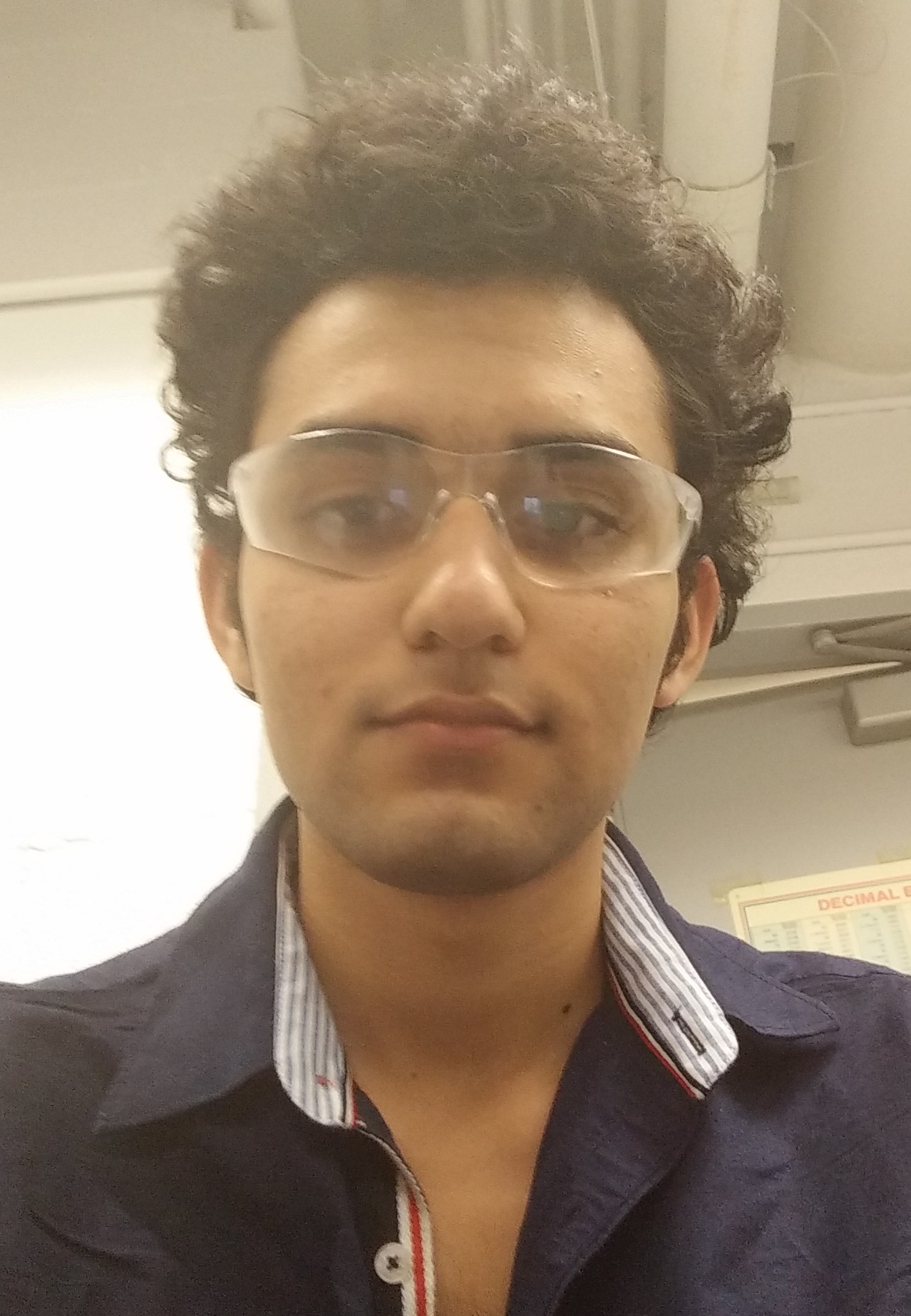
Department: Department of Mathematics
Title of Research: Some Mathe-physical perspectives on deep learning
Email: adogra@nyu.edu
Personal Web Page address: https://asdogra.mit.edu/
Supervisor(s): Kevin Webster, Jeroen Lamb
About me: B. A. in Mathematics and Physics (New York University)
Summary of Research: Dynamical Systems and Information Theory are the two fields closest to my heart. Their versatility allows me an interest in many directions, chief among which lie in Machine Learning, Nonlinear Systems, and Number Theory.
Research interests: Applied/Computational Mathematics, Dynamical Systems Theory, Information Theory, Mathematical Physics, Number Theory
Why did you choose the scholarship scheme at Imperial College: Autonomy in choice of research directions within Mathematics
Name: Hannah E. Murdock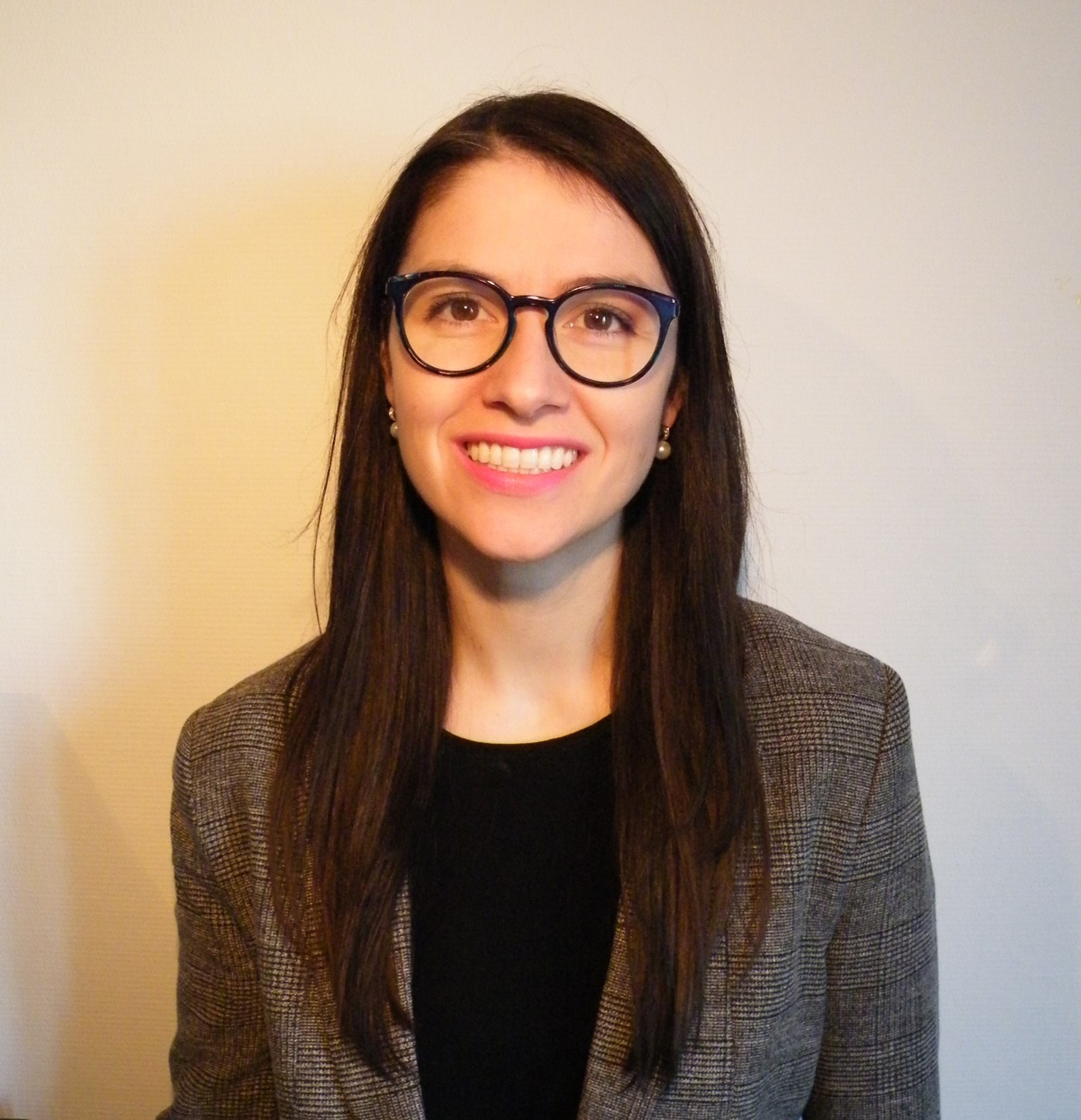
Department: Centre for Environmental Policy
Title of Research: Analysis of policy measures and behaviour change for decarbonising the transport sector among major GHG emitters
Email: h.murdock21@imperial.ac.uk
Personal Web Page address: https://www.imperial.ac.uk/people/h.murdock21
Supervisor(s): Iain Staffell, Malte Jansen
About me: I hold a bachelor’s degree in Psychology and Political Science, and master’s degrees in International Energy Policy from the Paris School of International Affairs and in Public Administration from the University of North Texas. Prior to coming to London, my principal appointments were as Research manager for policy and transport at REN21 based at UNEP Paris, Lead Author and Coordinator of the annual Renewables Global Status Report, and Coordinator for the NDC Transport Initiative for Asia.
Summary of Research: My research is focusing on which policies and which measures for behaviour change would be most effective in contributing to the decarbonisation of the transport sector in the top greenhouse gas-emitting countries and regions - namely China, the US, Europe, and India.
Research interests: energy, transport, behavioural economics, psychology
Why did you choose the scholarship scheme at Imperial College: It seemed to be the only funded opportunity available at Imperial that would allow me to work on a project that I came up with (i.e., not an already existing project).
Name: Said Munoz Montero
Department: Life Sciences
Title of Research: Analysis of antibiotic resistance cooperative traits in fluctuating environments
Email: s.munoz-montero21@imperial.ac.uk
Supervisor(s): Dr Jose Jimenez Zarco
About me: Mexican. I earned a bachelor's degree in biotechnology from Tec de Monterrey as well as a master's degree in biochemical sciences from UNAM. Much of my professional training as bioinformatician was at the Institute of Genomic Medicine, where I worked on High-Throughput Sequencing projects (RNAseq, Exome-seq, 16s profiling, metagenomics) with health applications. I co-founded the startup Abraxas Biosystems, which specialised in bioinformatics analysis for academia and industry. I've served as an iGem judge. I am very interested in synthetic biology.
Summary of Research: Bacteria thrive in complex communities where they depend on one another for survival. The interactions between different species evolve over time and are highly dependent on changing environmental conditions. Some of these interactions allow for the survival of a whole population that benefits from the hard work of a few cooperative individuals that produce 'public goods' that others can enjoy. We investigate the dynamics of cooperators (antibiotic resistant strains) and cheaters (sensitive strains) in response to environmental fluctuations derived from periods of an abundance of nutrients or starvation. Cooperative individuals pay a cost for producing 'public goods', and we hypothesise that they will be sensitive to changes from high to low abundance of nutrients. If the cooperators' population dwindles, other community members will be more exposed to antibiotics due to a lack of protection. We, therefore, propose accounting for the interplay between the ecology and the evolution of the population in response to fluctuations as a way of controlling the emergence of antibiotic resistance mechanisms and their transmission.
Research interests: Microbial Communities, Synthetic Biology
Why did you choose the scholarship scheme at Imperial College: The prestigious President Scholarship is more than just financial support, represents a community of leaders at Imperial College. Without this scholarship, I would not be collaborating with the best in my field at ICL.
Name: T. Lucas Makinen
Department: Physics
Title of Research: Learning the Universe: Neural Methods for Cosmological Statistics and Gravitational Lensing
Email: l.makinen21@imperial.ac.uk
Personal Web Page address: https://tlmakinen.github.io/
Supervisor(s): Alan Heavens, Natalia Porqueres, Benjamin Wandelt (Institut d'Astrophysique de Paris)
About me: I grew up between the suburbs of Washington, DC and Turku, Finland. I moved to Princeton for my undergraduate degree, where I studied physics, statistics, applied mathematics, and music. During summers I did research in the US and France, oscillating between biophysics and astrophysics, and did two European tours as principal trumpet in the university orchestra. In my third year I did a term of music study at the Royal College of Music while pursuing an astrostatistics project next door at Imperial with Prof. Roberto Trotta. Upon my return to the US I wrote my undergraduate thesis with David Spergel, Shirley Ho, and Peter Melchior between Princeton and the Flatiron Institute. I then moved to Paris for my Master’s degree at Sorbonne University with Benjamin Wandelt, which sparked my current research endeavours here at Imperial. Outside of science I play trumpet in several London-based bands and make music with my friends. In my spare time I study languages – reach out to me in English, French, Finnish, or Italian.
Summary of Research: One of the biggest challenges in cosmology is understanding how billions of galaxies arranged themselves under gravity to form the large scale structure — or cosmic web. I use neural networks to extract signatures of cosmological theory from enormous amounts of simulated and measured astronomical data. On one hand, I want to use AI to accelerate physical understanding. On the other, I want to use physics as a way to build our understanding of how these intelligent “black boxes” work.
Research interests: -Large-Scale Structure Cosmology -Primordial Non-Gaussianity -Gravitational Lensing -Information Theory -Neural Networks
Why did you choose the scholarship scheme at Imperial College: The President’s Scholarship allows for a lot of flexibility in the scope and variety of projects I’m able to undertake in my group at Imperial. The impressive travel fund also allows me to visit collaborators as a part of the Learn the Universe and Euclid Consortiums.
Name: Xu Zhang
Department: Life Sciences
Title of Research: Structural Biology Study of Apicomplexan Parasites
Email: x.zhang20@imperial.ac.uk
Supervisor(s): Prof. Steve Matthews
About me: I got Master of Research with Distinction in Structural Molecular Biology, and Bachelor degrees in Clinical Medicine and Biological Sciences with Honours (First Class) from Queen Mary University of London.
Summary of Research: I focus on elucidating high-resolution 3D atomic structures and functions of Apicomplexan Parasites.
Research interests: Structural Molecular Biology, X-ray Crystallography, NMR, Cryo-EM, Infectious Diseases
Why did you choose the scholarship scheme at Imperial College: This is a extremely generous and highly competitive scholarship to encourage world-wide students to pursue their academic career
